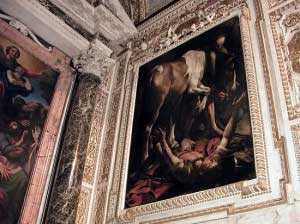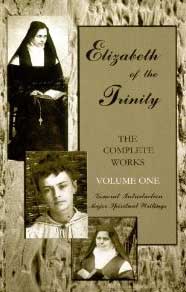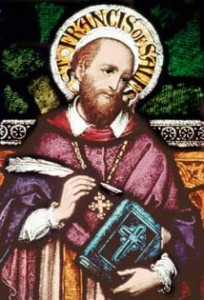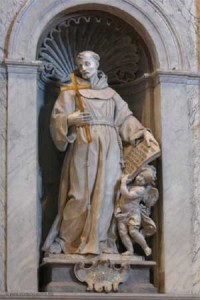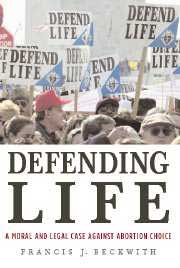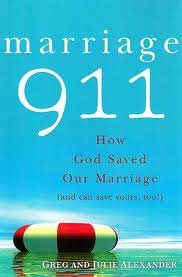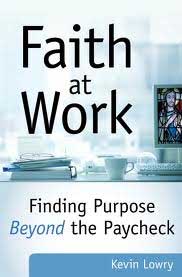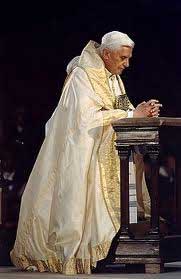Episode 2 The Daily Prayer of Discernment: The Ignatian Wisdom of the Examen Prayer with Fr. Timothy Gallagher. 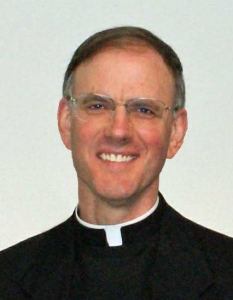  The First Step in the Examen Prayer:  Gratitude.  Taking time out of the day when our hearts are free to receive the Lord’s presence.  Prayer always takes two persons in relationship…ourselves and God.  Then together with the Lord, we see what the gifts of love God has poured out upon us.  The key in this first step, is not to look for our missteps (that may come later), but to look for the gifts and give thanks.
 The First Step in the Examen Prayer:  Gratitude.  Taking time out of the day when our hearts are free to receive the Lord’s presence.  Prayer always takes two persons in relationship…ourselves and God.  Then together with the Lord, we see what the gifts of love God has poured out upon us.  The key in this first step, is not to look for our missteps (that may come later), but to look for the gifts and give thanks.
[powerpress]
As outlined from the Spiritual Exercises of St. Ignatius of Loyola
(translated from the autograph by Fr. E. Mullan, S.J. Â 1909Â in the public domain)
METHOD FOR MAKING THE GENERAL EXAMEN
It contains in it five Points.First Point. The first Point is to give thanks to God our Lord for the benefits received.
Second Point. The second, to ask grace to know our sins and cast them out.
Third Point. The third, to ask account of our soul from the hour that we rose up to the present Examen, hour by hour, or period by period: and first as to thoughts, and then as to words, and then as to acts, in the same order as was mentioned in the Particular Examen.
Fourth Point. The fourth, to ask pardon of God our Lord for the faults.
Fifth Point. The fifth, to purpose amendment with His grace.OUR FATHER.
Father Timothy M. Gallagher, O.M.V., was ordained in 1979 as a member of the Oblates of the Virgin Mary, a religious community dedicated to retreats and spiritual formation according to the Spiritual Exercises of St. Ignatius. Â Fr. Gallagher is featured on the EWTN series “Living the Discerning Life: Â The Spiritual Teachings of St. Ignatius of Loyola”. Â For more information on books and audio available for purchase from Fr. Timothy Gallagher check out his website: www.frtimothygallagher.org
For the other episodes in this series check out
Fr. Timothy Gallagher’s “Discerning Hearts†page
Tags: catholic, catholic podcast, catholic prayer, cathollc spirituality, Daily Prayer, Timothy Gallagher
This entry was posted on Thursday, January 26th, 2012 at 6:51 am
You can follow any responses to this entry through the RSS 2.0 feed.
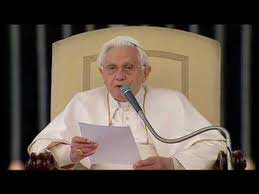
VATICAN CITY, 25 JAN 2012 (VIS) –
Benedict XVI dedicated his catechesis during this morning’s general audience to Christ’s priestly prayer during the Last Supper, as narrated in chapter 17 of the Gospel of St. John. In order to understand this prayer “in all its immense richness”, said the Pope, it is important to see it in the context of the Jewish feast of atonement, Yom Kippur, in which the high priest seeks atonement first for himself, then for the order of priests and finally for the community as a whole. Likewise, “that night Jesus addressed the Father at the moment in which He offered Himself. He, priest and victim, prayed for Himself, for the Apostles and for all those who would believe in Him”.
The prayer which Jesus prays for Himself is the request for His own glorification. “It is in fact more than a request”, the Holy Father said, “it is a declaration of willingness to enter freely and generously into the Father’s plan, which is accomplished through death and resurrection. …
Jesus begins His priestly prayer by saying: ‘Father, the hour has come; glorify your Son so that your Son may glorify you’. The glorification Jesus seeks for Himself, as High Priest, is to be fully obedient to the Father, an obedience which leads Him to fulfil His filial status: ‘So now, Father, glorify me in your own presence with the glory that I had in your presence before the world existed'”.
The second part of Jesus’ prayer is His intercession for the disciples who have followed Him, and His request that they may be sanctified. Jesus says: ‘They do not belong to the world, just as I do not belong to the world. Sanctify them in the truth’. Benedict XVI explained how “To sanctify means to transfer something – a person or an object – to God. This involves two complementary aspects: on the one hand, the idea of ‘segregation’ … from man’s personal life in order to be completely given over to God; on the other hand there is the idea of ‘being sent out’, of mission. Having been given to God, the consecrated thing or person exists for others. … A person is sanctified when, like Jesus, he is segregated from the world, set aside for God in view of a task and, for this reason, available for everyone. For disciples this means continuing Jesus’ mission”.
In the third phase of the priestly prayer, “Jesus asks the Father to intervene in favour of all those who will be brought to the faith by the mission inaugurated by the Apostles. … ‘I ask not only on behalf of these, but also on behalf of those who will believe in me through their word’. … Jesus prays for the Church in all times, He also prays for us. … The main element in Jesus’ priestly prayer for His disciples is His request for the future unity of those who will believe in Him. This unity is not a worldly achievement. It derives exclusively from divine unity and comes down to us from the Father, through the Son and in the Holy Spirit”.
By this priestly prayer Jesus establishes the Church, “which is nothing other than the community of disciples who, through their faith in Christ as the One sent by the Father, receive His unity and are involved in Jesus’ mission to save the world by leading it to a knowledge of God”.
Benedict XVI invited the faithful to read and meditate upon Jesus priestly prayer, and to pray to God themselves, asking Him “to help us enter fully into the plan He has for each of us. Let us ask Him to consecrate us to Himself, that we may belong to Him and show increasing love for others, both near and far. Let us ask Him to help us open our prayers to the world, not limiting them to requests for help in our own problems, but remembering our fellow man before the Lord and learning the beauty of interceding for others. Let us ask Him for the gift of visible unity among all those who believe in Christ, … that we may be ready to respond to anyone who asks us about the reasons for our hope”.
At the end of his audience, Benedict XVI delivered greetings in various languages to the pilgrims and faithful gathered in the Paul VI Hall, reminding them that today’s Feast of the Conversion of St. Paul marks the end of the Week of Prayer for Christian Unity. Addressing Polish faithful he said: “The conversion of the Apostle of the Gentiles near Damascus is proof that, in the final analysis, it is God Himself Who decides the destiny of His Church. Let us ask Him for the grace of unity, which also requires our individual conversion, while remaining faithful to the truth and love of God”.
AG/Â Â Â Â Â Â Â Â Â Â Â Â Â Â Â Â Â Â Â Â Â Â Â Â Â Â Â VIS 20120125 (826)
Tags: catholic, catholic podcast, catholic prayer, cathollc spirituality, pope benedict xvi
This entry was posted on Thursday, January 26th, 2012 at 12:02 am
You can follow any responses to this entry through the RSS 2.0 feed.
Organized Religion?
[powerpress]
It’s something we’ve all heard before: I believe in God, but not organized religion.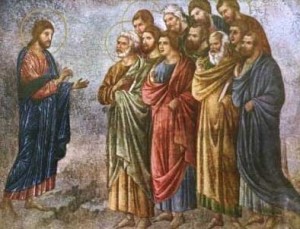
But as Catholics we believe that Jesus started a Church—yes an organized religion, if you will.
The Church is a gift to the world, which God has ordained as the vehicle in which we are sanctified and grow on the way to our heavenly destination.
Above all, the Catholic Church is a family. Man is not an island, as it was once famously said, and we need the community found in our brothers and sisters in the Faith.
A visible Church is necessary for the dispensing of the seven sacraments, which Jesus instituted for the forgiveness of sins and growth in grace.
And God has always desired that His people gather to give Him glory by corporate, liturgical worship and sacrifice, which is fulfilled in the New Covenant by the Holy Mass.
Yes, the organized institution of the Church has often had its share of scandals and sins. The human face of the Church can be messy and imperfect. But God does not desire for us to escape to a spiritual island or alternative religion, but to serve Him and His people in the Church He founded and has promised to be with until He returns in glory.
Tags: catholic, catholic church, catholic podcast, catholic prayer, cathollc spirituality, Organized Religion, religion, visible Church
This entry was posted on Wednesday, January 25th, 2012 at 7:56 am
You can follow any responses to this entry through the RSS 2.0 feed.
From the choral works of Z Randall Stroope
“The Conversion of Saul”
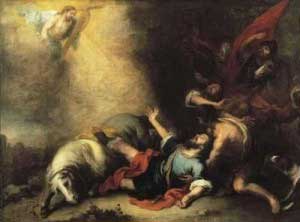 “Paul’s conversion matured in his encounter with the Risen Christ; it was this encounter that radically changed his life. What happened to him on the road to Damascus is what Jesus asks in today’s Gospel: Saul is converted because, thanks to the divine light, “he has believed in the Gospel”. In this consists his and our conversion: in believing in Jesus dead and risen and in opening to the illumination of his divine grace. In that moment Saul understood that his salvation did not depend on good works fulfilled according to the law, but on the fact that Jesus died also for him the persecutor and has risen. This truth by which every Christian life is enlightened thanks to Baptism completely overturns our way of life. To be converted means, also for each one of us, to believe that Jesus “has given himself for me”, dying on the Cross (cf. Galatians 2: 20) and, risen, lives with me and in me. Entrusting myself to the power of hisforgiveness, letting myself be taken by his hand, I can come out of the quicksands of pride and sin, of deceit and sadness, of selfishness and of every false security, to know and live the richness of his love.”( Pope Benedict XVI from address given on January 25, 2009)
“Paul’s conversion matured in his encounter with the Risen Christ; it was this encounter that radically changed his life. What happened to him on the road to Damascus is what Jesus asks in today’s Gospel: Saul is converted because, thanks to the divine light, “he has believed in the Gospel”. In this consists his and our conversion: in believing in Jesus dead and risen and in opening to the illumination of his divine grace. In that moment Saul understood that his salvation did not depend on good works fulfilled according to the law, but on the fact that Jesus died also for him the persecutor and has risen. This truth by which every Christian life is enlightened thanks to Baptism completely overturns our way of life. To be converted means, also for each one of us, to believe that Jesus “has given himself for me”, dying on the Cross (cf. Galatians 2: 20) and, risen, lives with me and in me. Entrusting myself to the power of hisforgiveness, letting myself be taken by his hand, I can come out of the quicksands of pride and sin, of deceit and sadness, of selfishness and of every false security, to know and live the richness of his love.”( Pope Benedict XVI from address given on January 25, 2009)
Tags: catholic, catholic podcast, catholic prayer, cathollc spirituality
This entry was posted on Wednesday, January 25th, 2012 at 12:42 am
You can follow any responses to this entry through the RSS 2.0 feed.
Episode 3 Beginning to Pray: Â “Heaven in Faith” Â Day 2 Prayer 1 – “The Kingdom of God is Within You”
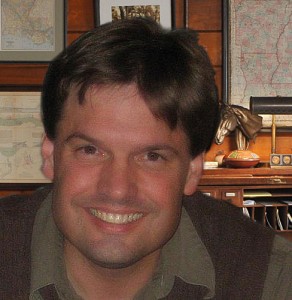
[powerpress]
Dr. Anthony Lilles is a Catholic husband and father of three teaching Spiritual Theology at St. John Vianney Theological Seminary. He  teaches spiritual theology and spiritual direction to transitional deacons, and the spiritual classics to the men who enter the Spirituality Year, a year of prayer in preparation for seminary formation.  He is the author of the “Beginning to Pray”  catholic blog spot.
From “Heaven in Faith: Day 2 Prayer 1” found in The Complete Works vol 1:
6. The same saint also says that “God is the center of the soul. Â So when the soul with all” its “strength will know God perfectly, love and enjoy Him fully, then it will have reached the deepest center that can be attained in Him.” Â Before attaining this, the soul is already “in God who is its center,” “but it is not yet in its deepest center, for it can still go further. Â Since love is what unites us to God, the more intense this love is, the more deeply the soul enters into God and the more it is centered in Him. Â When it “possess even one degree of love it is already in its center”; but when this love has attained its perfection, the soul will have penetrated into its deepest enter. Â There it will be transformed to the point of becoming very like God.”
For other episodes in the series visit the Discerning Hearts page for Dr. Anthony Lilles
We would like to offer heartfelt thanks to
Miriam Gutierrez for providing for us “the voice” of Blessed Elizabeth for this series
Tags: blessed elizabeth of the trinity, carmelite, catholic, catholic podcast, catholic prayer, cathollc spirituality, heaven in faith
This entry was posted on Tuesday, January 24th, 2012 at 12:50 am
You can follow any responses to this entry through the RSS 2.0 feed.
Episode 3 – Regnum Novum:  Value # 3.  Look, Judge, Act - Authentically Living Out Catholic Social Teaching
[powerpress]

Blessed Pope John XXIII gave us this practical suggestion in his letter Mater et magistra. The Social Doctrine provides us with principles for reflection, criteria for judgment, and directives for action. Social justice is supposed to be lived out in our every day. That’s the point, and so this Holy Father gave us the paradigm.
Look at the world around you, that which is most immediate to you. Start with your family. Proceed to your culture. Witness the social and economic realities/policies near you. Know the political landscape of your city, county, state, and nation. See your neighbors close at hand and around the world. Use the principles of the Social Teaching as you look so that you know what to look for.
Judge what is best for the family, for the culture, for the society and the economy, for the state, for the world. Use the criteria provided by the Social Doctrine. What is missing? Â Why is it missing? Â What can be done?
Act on it. You’re a lay person with as real an obligation to evangelization as any priest. Do something in the world so as to make it’s semblance more like that which the Lord desires. Volunteer. Participate. Pray. Do not let some tell you that prayer is not action. Pray. You can pray and raise good children. Act.
Discerning Hearts is blessed to present Omar F. A. Guiterrez, M.A. , Special Assistant  to Archbishop George Lucas of the Archdiocese of Omaha, in a groundbreaking series which breaks open the heart of Catholic Social Doctrine.
We encourage you to visit “Regnum Novum – A New Kingdom: A Revolution†Omar Guiterrez’s blog site
 We live at a very special time. The confluence of many things has brought forth the clear need to be able to articulate the Social Teaching of the Catholic Church in a way that is accessible and applicable. This is not to be an effort where high-minded theories are to be bandied about. Rather, this is a time of opportunity wherein we can apply the Social Doctrine to the concrete so as to bring about a New Kingdom, a Revolution. – Omar G. from Regnum Novum
We live at a very special time. The confluence of many things has brought forth the clear need to be able to articulate the Social Teaching of the Catholic Church in a way that is accessible and applicable. This is not to be an effort where high-minded theories are to be bandied about. Rather, this is a time of opportunity wherein we can apply the Social Doctrine to the concrete so as to bring about a New Kingdom, a Revolution. – Omar G. from Regnum Novum
Also visit Omar’s “Discerning Hearts†page Catholic Social Teaching 101
Tags: Blessed Pope John XXIII, catholic, catholic podcast, catholic prayer, catholic social doctrine, catholic social teaching, Catholic Social Teaching Episode, cathollc spirituality
This entry was posted on Tuesday, January 24th, 2012 at 12:36 am
You can follow any responses to this entry through the RSS 2.0 feed.
Mark breaks open St. Paul’s letter to the Timothy–
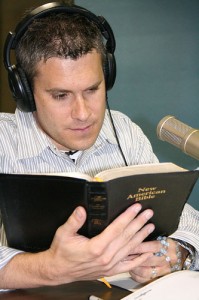
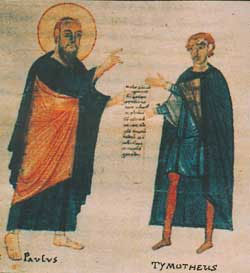 Exactly who was St. Paul writing to in his letter to Timothy? What was the purpose of the letter? Â What was the message? Â How does it apply to our lives today?
Exactly who was St. Paul writing to in his letter to Timothy? What was the purpose of the letter? Â What was the message? Â How does it apply to our lives today?
[powerpress]
Mark Hart is an author, speaker, director and teacher, Mark’s work both written and spoken, is known across the country and world. While he serves as the Vice President of LIFE TEEN, he is known to tens of thousands simply as the “Bible Geek ®†Mark passionately echoes the gospel to all he encounters. He is as deep as he is funny, and his love for his wife and daughters is second only to his immense love for Jesus Christ.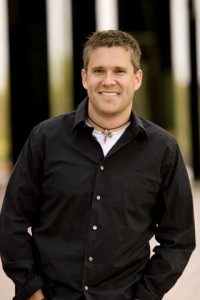
Visit Mark at www.lifeteen.com
Tags: catholic, catholic podcast, catholic prayer, cathollc spirituality, life teen, mark hart, st. paul, st. timothy, Timothy Mark
This entry was posted on Tuesday, January 24th, 2012 at 12:27 am
You can follow any responses to this entry through the RSS 2.0 feed.
Denver, Colo., Jan 23, 2011 / 07:09 am (CNA/EWTN News).- On Jan. 24, during the Week of Prayer for Christian Unity that runs from Jan. 18-25, Catholics will celebrate the life of St. Francis de Sales. A bishop and Doctor of the Church, his preaching brought thousands of Protestants back to the Catholic fold, and his writings on the spiritual life have proved highly influential.
The paradoxical circumstances of Francis’ birth, in the Savoy region (now part of France) during 1567, sum up several contradictory tendencies of the Church during his lifetime. The reforms of the Council of Trent had purified the Church in important ways, yet Catholics and Protestants still struggled against one another – and against the temptations of wealth and worldly power.
Francis de Sales, a diplomat’s son, was born into aristocratic wealth and privilege. Yet he was born in a room that his family named the “St. Francis room†– where there hung a painting of that saint, renowned for his poverty, preaching in the wilderness. In later years, Francis de Sales would embrace poverty also; but early in his ministry, the faithful chided him for having an aristocratic manner.
In many ways, Francis’ greatest achievements – such as the “Introduction to the Devout Life,†an
innovative spiritual guidebook for laypersons, or his strong emphasis on the role of human love in Christian devotion – represent successful attempts to re-integrate seemingly disparate “worldly†and “spiritual†realities into one coherent vision of life.
Few people, however, would have predicted these achievements for Francis during his earlier years. As a young man, he studied rhetoric, the humanities, and law. He had his law degree by age 25, and was headed for a political career. All the while, he was keeping the depths of his spiritual life – such as his profound devotion to the Virgin Mary, and his resolution of religious celibacy – a secret from the world.
Eventually, however, the truth came out, and Francis clashed with his father, who had arranged a marriage for him. The Bishop of Geneva intervened on Francis’ behalf, finding him a position in the administration of the Swiss Church that led to his priestly ordination in 1593. He volunteered to lead a mission to bring Switzerland, dominated by Calvinist Protestantism, back to the Catholic faith.
Taking on a seemingly impossible task, with only one companion – his cousin – the new priest adopted a harsh but hopeful motto: “Apostles battle by their sufferings, and triumph only in death.” It would serve him well as he traveled through Switzerland, facing many Protestants’ indifference or hostility, and being attacked by wild animals and even would-be assassins.
Some of Francis’ hearers –even, for a time, John Calvin’s protege Theodore Beza– found themselves captivated by the thoughtful, eloquent and joyful manner of the priest who implored their reunion with the Church. But he had more success when he began writing out these sermons and exhortations, slipping them beneath the doors that had been closed against him.
This pioneering use of religious tracts proved surprisingly effective at breaking down the resistance of the Swiss Calvinists, and it is estimated that between 40,000 and 70,000 of them returned to the Church through his efforts. He also served as a spiritual director, both in person and through written correspondence, with the latter format inspiring the “Introduction to the Devout Life.â€
In 1602, Francis was chosen to become the Bishop of Geneva, a position he did not seek or desire. Accepting the position, however, he gave the last twenty years of his life in ongoing sacrifice, for the restoration of Geneva’s churches and religious orders. He also helped one of his spiritual directees, the widow and future saint Jane Frances de Chantal, to found an order with a group of women.
Worn out by nearly thirty years of arduous travel and other burdens of Church leadership, Francis fell ill in 1622 while visiting one of a convent he had helped to found in Lyons. He died there, three days after Christmas that year. St. Francis de Sales was canonized in 1665, and honored as a Doctor of the Church in 1877.
Because of the crucial role of writing in his apostolate, St. Francis de Sales is the patron of writers and journalists. He is also widely credited with restoring, during his own day, a sense of what the Second Vatican Council would later call the “universal call to holiness†– that is, the notion that all people, not only those in formal religious life, are called to the heights of Christian sanctification. – CNA/EWTN News
A Prayer of St. Frances de Sales
Lord, I am yours,
and I must belong to no one but you.
My soul is yours,
and must live only by you.
My will is yours,
and must love only for you.
I must love you as my first cause,
since I am from you.
I must love you as my end and rest,
since I am for you.
I must love you more than my own being,
since my being subsists by you.
I must love you more than myself,
since I am all yours and all in you.
AMEN.
Check out other Discerning Hearts Posts on St. Francis de Sales
[p2p type=”id” value=”2622″]
[p2p type=”id” value=”2286″]
Meditations from the Introduction to the Devout Life by St. Francis de Sales
Tags: catholic, catholic podcast, catholic prayer, cathollc spirituality, doctor of the church, Francis De Sales, introduction to the devout life, spiritual guidebook, st francis de sales
This entry was posted on Tuesday, January 24th, 2012 at 12:09 am
You can follow any responses to this entry through the RSS 2.0 feed.
“Defending Life” by Dr. Francis Beckwith  is one of the finest books outlining the moral and legal case against abortion. 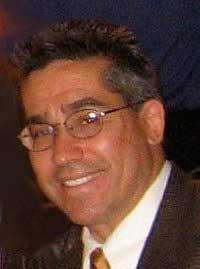 Dr. Beckwith is a professor of philosophy and church-state studies at Baylor University.  It’s important to note that the thrust of the text is philosophical and jurisprudential rather than religious, which is important when discussing the issue with pro-abortion advocates.
Dr. Beckwith is a professor of philosophy and church-state studies at Baylor University.  It’s important to note that the thrust of the text is philosophical and jurisprudential rather than religious, which is important when discussing the issue with pro-abortion advocates.
[powerpress]
The book is divided into three parts. Part 1 deals with moral reasoning, the law, and politics. Part 2 is the core of Frank’s case for the pro-life view, which includes both the scientific and philosophic considerations. Part 3 takes on cloning and embryonic stem-cell research.
You can find the book here
“By a masterful marshalling of the pertinent arguments and a civil engagement with the counter-arguments, Beckwith makes a convincing case for law and social policy based on reason and natural rights rather than the will to power.”
Reverend Richard John Neuhaus, Editor-in-Chief, First Things
Tags: abortion, catholic, catholic podcast, catholic prayer, cathollc spirituality, prolife issues, right to life
This entry was posted on Monday, January 23rd, 2012 at 8:41 am
You can follow any responses to this entry through the RSS 2.0 feed.
In “Marriage 911: How God Saved Our Marriage (and can save yours, too!)”, we meet 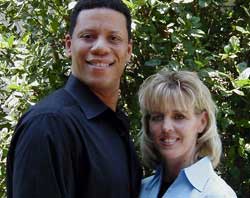 Greg and Julie Alexander, a great and courageous couple.  They candidly share the trials of what they felt was a lifeless, loveless marriage on the verge of divorce.  Married in the Church,  they began the process of seeking a way out of their union. Unexpectedly they encountered a faithful caring priest, who shared with them the Church’s understanding of marriage, and through incoporating those truths, revived and revitalized their sacramental relationship and their family as well.  Now married over 20 years, they offer emergency hope and guidance to couples struggling in a similar conditions through their “Alexander House” non-profit marriage and family life  enrichment apostolate.  Visit their outstanding website http://www.thealexanderhouse.org/
Greg and Julie Alexander, a great and courageous couple.  They candidly share the trials of what they felt was a lifeless, loveless marriage on the verge of divorce.  Married in the Church,  they began the process of seeking a way out of their union. Unexpectedly they encountered a faithful caring priest, who shared with them the Church’s understanding of marriage, and through incoporating those truths, revived and revitalized their sacramental relationship and their family as well.  Now married over 20 years, they offer emergency hope and guidance to couples struggling in a similar conditions through their “Alexander House” non-profit marriage and family life  enrichment apostolate.  Visit their outstanding website http://www.thealexanderhouse.org/
[powerpress]
Their breakthrough work in marriage has been featured on EWTN and talk radio, as well as in many publications, including Patrick Madrid s Surprised by Truth 3, Envoy, Catholic Herald, Denver Catholic Register, and Our Sunday Visitor.
You can find the book here
Tags: catholic, catholic podcast, catholic prayer, cathollc spirituality
This entry was posted on Monday, January 23rd, 2012 at 7:45 am
You can follow any responses to this entry through the RSS 2.0 feed.
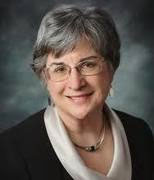 Bruce and I discuss with Dr. Janet Smith “The Right to Privacy” . In her book she presents a critical look at the meaning of the “right to privacy†that has been so often employed by the Supreme Court in recent times to justify the creation of rights not found in the Constitution by any traditional method of interpreting a legal document.
Bruce and I discuss with Dr. Janet Smith “The Right to Privacy” . In her book she presents a critical look at the meaning of the “right to privacy†that has been so often employed by the Supreme Court in recent times to justify the creation of rights not found in the Constitution by any traditional method of interpreting a legal document.
[powerpress]
Dr. Smith shows how these inventions have led to the legal protection of abortion, assisted suicide, homosexual acts, and more. As Judge Bork says it shows that “morals legislation now seems constitutionally impermissibleâ€, and that the counterfeit right to privacy belongs to the genre of the indecipherable and incoherent that no one who wrote the Constitution and the Bill of Rights would have contemplated.
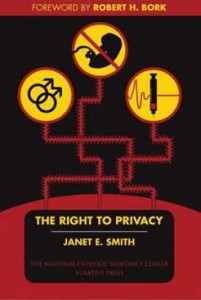 At the heart of Catholic Social Teaching is the fundamental principle of the dignity of every human life. Understanding and appreciating that, and then assessing the laws of the land of our country, will help us to navigate and discern our service and response as Catholic Americans living in the world. We are called to defend the “Gospel of Life”, Dr. Smith helps us to do just that.
At the heart of Catholic Social Teaching is the fundamental principle of the dignity of every human life. Understanding and appreciating that, and then assessing the laws of the land of our country, will help us to navigate and discern our service and response as Catholic Americans living in the world. We are called to defend the “Gospel of Life”, Dr. Smith helps us to do just that.
“The Right to Privacy” can be found at www.ignatius.com
Tags: assisted suicide, bill of rights, catholic, catholic podcast, catholic prayer, cathollc spirituality, constitution and the bill of rights, homosexual acts, janet smith, legislation, morals, morning show, right to privacy, supreme court
This entry was posted on Saturday, January 21st, 2012 at 12:16 am
You can follow any responses to this entry through the RSS 2.0 feed.
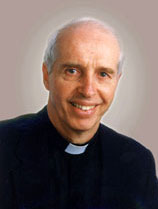
The First Reading and the Psalm
Jonah 3:1-5, 10
Psalm 25:4-5, 6-7, 8-9
Second Reading 1 Corinthians 7:29-31
The Gospel, Mark 1:14-20
Tags: catholic, catholic podcast, catholic prayer, cathollc spirituality, Fr. Francis Martin
This entry was posted on Friday, January 20th, 2012 at 8:42 pm
You can follow any responses to this entry through the RSS 2.0 feed.
Faith at Work:  Finding Purpose Beyond the Paycheck is fantastic…a remedy for  spirituality 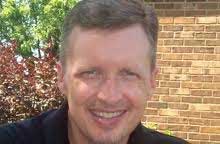 seekers  in the workplace (and in the home as well)!  You have to love a work that begins with conversion as a goal.  Kevin Lowry offers concrete helps which assist all of us deepen our relationship with Christ and His Church, and live authentic lives as Catholics in the world.  Great for individuals and for group study as well.
seekers  in the workplace (and in the home as well)!  You have to love a work that begins with conversion as a goal.  Kevin Lowry offers concrete helps which assist all of us deepen our relationship with Christ and His Church, and live authentic lives as Catholics in the world.  Great for individuals and for group study as well.
[powerpress]
“Too many Christians treat ambition and success as if they’re four-letter words…. For a Catholic in business, they can be touchstones of sanctification.”— Scott Hahn, Ph.D., professor of biblical theology, Franciscan University of Steubenville
 Be sure to visit Kevin Lowry’s website at Grateful Convert
Check it out here
Tags: catholic, catholic podcast, catholic prayer, cathollc spirituality, Christ and His Church, Kevin Lowry
This entry was posted on Friday, January 20th, 2012 at 8:56 am
You can follow any responses to this entry through the RSS 2.0 feed.
Episode 2 – The School of Prayer: Reflections on the teachings of Pope Benedict XVI –  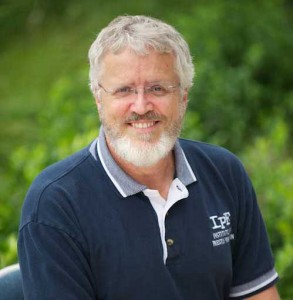 Faith and reason in the life of prayer.  Allowing God to effect our minds, as well as our hearts.  If you let God close you will be free…to let him in so close that God prays in you.  Letting God’s love be the norm of our culture…in the other and in the poor.  The role of silence in prayer and posture of kneeling.
Faith and reason in the life of prayer. Â Allowing God to effect our minds, as well as our hearts. Â If you let God close you will be free…to let him in so close that God prays in you. Â Letting God’s love be the norm of our culture…in the other and in the poor. Â The role of silence in prayer and posture of kneeling.
[powerpress]
Deacon James Keating, PhD, the director of Theological Formation for the Institute for Priestly Formation, located at Creighton University, in Omaha.
From  Pope Benedict’s 2nd audience on prayer:
A look at recent history reveals the failure of the predictions of those who, in the age of the Enlightenment, foretold the disappearance of religions and who exalted absolute reason, detached from faith, a reason that was to dispel the shadows of religious dogmatism and was to dissolve the “world of the sacredâ€, restoring to the human being freedom, dignity and autonomy from God. The experience of the past century, with the tragedy of the two World Wars, disrupted the progress that autonomous reason, man without God, seemed to have been able to guarantee.
The Catechism of the Catholic Church says: “In the act of creation, God calls every being from nothingness into existence…. Even after losing through his sin his likeness to God, man remains an image of his Creator, and retains the desire for the one who calls him into existence. All religions bear witness to man’s essential search for Godâ€Â (n. 2566). We could say — as I explained in my last Catecheses — that there has been no great civilization, from the most distant epoch to our day, which has not been religious.
For more information on the “Institute of Priestly Formation†and for other material available by Deacon Keating, just click here
Don’t forget to pickup a copy of “Communion with Christ†, it is one of the best audio sets on prayer…ever!
Check out Deacon Keating’s “Discerning Heart†page
Tags: catholic, catholic podcast, catholic prayer, cathollc spirituality, james keating, pope benedict, pope benedict xvi
This entry was posted on Thursday, January 19th, 2012 at 10:34 pm
You can follow any responses to this entry through the RSS 2.0 feed.
Episode 1 The Daily Prayer of Discernment: The Ignatian Wisdom of the Examen Prayer with Fr. Timothy Gallagher –  Serves as an introduction to the coming series and the Examen Prayer. Â
Serves as an introduction to the coming series and the Examen Prayer. Â
Can we live with our spiritual eyes open to catch the action of God? Â The Examen Prayer is the one prayer St. Ignatius could not imagine doing without. Â You can’t stand still in the spiritual life if you are praying the Examen Prayer. Â Â
[powerpress]
As outlined from the Spiritual Exercises of St. Ignatius of Loyola
(translated from the autograph by Fr. E. Mullan, S.J. Â 1909Â in the public domain)
METHOD FOR MAKING THE GENERAL EXAMEN
It contains in it five Points.First Point. The first Point is to give thanks to God our Lord for the benefits received.
Second Point. The second, to ask grace to know our sins and cast them out.
Third Point. The third, to ask account of our soul from the hour that we rose up to the present Examen, hour by hour, or period by period: and first as to thoughts, and then as to words, and then as to acts, in the same order as was mentioned in the Particular Examen.
Fourth Point. The fourth, to ask pardon of God our Lord for the faults.
Fifth Point. The fifth, to purpose amendment with His grace.OUR FATHER.
Father Timothy M. Gallagher, O.M.V., was ordained in 1979 as a member of the Oblates of the Virgin Mary, a religious community dedicated to retreats and spiritual formation according to the Spiritual Exercises of St. Ignatius. Â Fr. Gallagher is featured on the EWTN series “Living the Discerning Life: Â The Spiritual Teachings of St. Ignatius of Loyola”. Â For more information on books and audio available for purchase from Fr. Timothy Gallagher check out his website: www.frtimothygallagher.org
For the other episodes in this series check out
Fr. Timothy Gallagher’s “Discerning Hearts†page
Tags: catholic, catholic podcast, catholic prayer, cathollc spirituality, Daily Prayer, Timothy Gallagher
This entry was posted on Thursday, January 19th, 2012 at 7:25 am
You can follow any responses to this entry through the RSS 2.0 feed.


